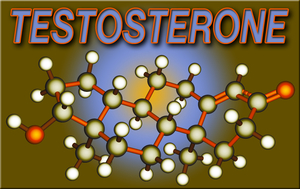Introduction
Antipsychotic medications, while essential for managing various psychiatric disorders, can lead to a condition known as hyperprolactinemia, characterized by elevated levels of prolactin in the blood. This condition can significantly impact sexual function, a concern that resonates deeply with American males. This article explores the management strategies and hormone interventions available to mitigate the sexual dysfunction associated with antipsychotic-induced hyperprolactinemia.
Understanding Hyperprolactinemia and Its Impact on Sexual Function
Hyperprolactinemia, often a side effect of certain antipsychotic drugs, can lead to a range of sexual dysfunctions in men, including decreased libido, erectile dysfunction, and infertility. The mechanism involves the suppression of dopamine, which normally inhibits prolactin secretion from the pituitary gland. When dopamine activity is reduced by antipsychotics, prolactin levels rise, leading to these sexual health issues.
Management Strategies for Antipsychotic-Induced Hyperprolactinemia
Effective management of antipsychotic-induced hyperprolactinemia requires a multifaceted approach. The first step is often a review of the patient's medication regimen. Switching to an antipsychotic with a lower propensity to elevate prolactin levels, such as aripiprazole or quetiapine, can be beneficial. However, this must be done cautiously, considering the patient's psychiatric stability.
Hormone Interventions: A Targeted Approach
For those who cannot switch medications, hormone interventions may be necessary. Dopamine agonists, such as cabergoline or bromocriptine, can be used to directly counteract the elevated prolactin levels. These medications work by stimulating dopamine receptors, thereby reducing prolactin secretion. It is crucial for patients to be monitored closely for side effects and efficacy when using these agents.
Lifestyle Modifications and Supportive Therapies
In addition to pharmacological interventions, lifestyle modifications can play a supportive role in managing sexual dysfunction. Regular exercise, a balanced diet, and stress management techniques can improve overall well-being and potentially enhance sexual function. Psychotherapy, particularly cognitive-behavioral therapy, can also be beneficial in addressing the psychological aspects of sexual dysfunction.
The Role of Endocrinologists and Psychiatrists in Collaborative Care
Managing antipsychotic-induced hyperprolactinemia and its associated sexual dysfunction requires a collaborative approach between endocrinologists and psychiatrists. Regular monitoring of prolactin levels and sexual function is essential to tailor treatment plans effectively. Open communication between healthcare providers and patients is key to ensuring that both psychiatric and sexual health needs are met.
Emerging Therapies and Future Directions
Research into new antipsychotic medications with minimal impact on prolactin levels continues to evolve. Additionally, novel therapies targeting the prolactin receptor or other pathways involved in sexual function are being explored. As these advancements progress, they offer hope for more effective and less invasive treatments for American males affected by this condition.
Conclusion
Antipsychotic-induced hyperprolactinemia poses a significant challenge to the sexual health of American males. However, with a comprehensive approach that includes medication review, hormone interventions, lifestyle modifications, and collaborative care, it is possible to manage this condition effectively. As research advances, the future holds promise for even more targeted and effective treatments, ensuring that men can maintain both their mental and sexual health while on antipsychotic therapy.
Contact Us Today For A Free Consultation

- Exploring Vasopressin Receptor Antagonists: A Breakthrough in Treating Sexual Dysfunction in Eugonadal Men [Last Updated On: February 26th, 2025] [Originally Added On: February 26th, 2025]
- Somatostatin Analogues and Sexual Dysfunction in American Men with Neuroendocrine Disorders [Last Updated On: February 28th, 2025] [Originally Added On: February 28th, 2025]
- Kisspeptin Therapy: A Promising Approach to Enhancing Sexual Function in American Men with Hypothalamic Hypogonadism [Last Updated On: March 4th, 2025] [Originally Added On: March 4th, 2025]
- Optimizing Cortisol-Testosterone Ratio: Key to Effective Erectile Dysfunction Management and Hormone Therapy [Last Updated On: March 7th, 2025] [Originally Added On: March 7th, 2025]
- Neurosteroid Modulation in Men: A Promising Treatment for Libido Disorders [Last Updated On: March 8th, 2025] [Originally Added On: March 8th, 2025]
- Optimizing Men's Hormonal Health with Aromatase Inhibitors: Balancing Testosterone and Estradiol [Last Updated On: March 9th, 2025] [Originally Added On: March 9th, 2025]
- Unveiling the Potential of DHEA in Combating Age-Related Sexual Dysfunction in Men: Insights from a Groundbreaking Study [Last Updated On: March 12th, 2025] [Originally Added On: March 12th, 2025]
- Exploring Melatonin's Impact on Circadian Rhythms and Sexual Health: A New Frontier in Hormone Therapy for American Males [Last Updated On: March 13th, 2025] [Originally Added On: March 13th, 2025]
- Evaluating hCG Monotherapy and Testosterone Replacement Therapy: Impacts on Erectile Function in Men with Secondary Hypogonadism [Last Updated On: March 15th, 2025] [Originally Added On: March 15th, 2025]
- Testosterone Formulations: Pharmacokinetics and Impact on Sexual Function in American Males [Last Updated On: March 17th, 2025] [Originally Added On: March 17th, 2025]
- SARMs: A Promising Approach to Sexual Dysfunction in Aging American Males [Last Updated On: March 18th, 2025] [Originally Added On: March 18th, 2025]
- GnRH Modulation Therapy Enhances Sexual Desire in Men with HSDD: Clinical Trial Results [Last Updated On: March 18th, 2025] [Originally Added On: March 18th, 2025]
- Testosterone, Endothelial Function, and NO: Key to Male Sexual Health [Last Updated On: March 18th, 2025] [Originally Added On: March 18th, 2025]
- Ghrelin: Linking Appetite Regulation to Sexual Health in American Males [Last Updated On: March 19th, 2025] [Originally Added On: March 19th, 2025]
- Genetic Polymorphisms in Androgen Receptors Impact Hormone Therapy for Male Sexual Dysfunction [Last Updated On: March 20th, 2025] [Originally Added On: March 20th, 2025]
- Leptin Resistance Impacts Sexual Function in Men: Insights for Hormone Therapy [Last Updated On: March 20th, 2025] [Originally Added On: March 20th, 2025]
- Vitamin D's Role in Testosterone and Erectile Function in American Males [Last Updated On: March 20th, 2025] [Originally Added On: March 20th, 2025]
- Kiss1 Expression and Sexual Dysfunction in Aging American Males: Insights and Therapies [Last Updated On: March 21st, 2025] [Originally Added On: March 21st, 2025]
- Zinc Boosts Testosterone Therapy Efficacy for Sexual Dysfunction in American Men [Last Updated On: March 21st, 2025] [Originally Added On: March 21st, 2025]
- Bioavailable vs. Total Testosterone: Impacts on Sexual Function in Men's HRT [Last Updated On: March 21st, 2025] [Originally Added On: March 21st, 2025]
- Magnesium Levels Predict Response to Testosterone Therapy in American Males with ED [Last Updated On: March 21st, 2025] [Originally Added On: March 21st, 2025]
- Combined Phlebotomy and HRT: Enhancing Sexual Function in Males with Iron Overload [Last Updated On: March 22nd, 2025] [Originally Added On: March 22nd, 2025]
- Selenium's Role in Male Sexual Health and Hormonal Balance: Insights from American Studies [Last Updated On: March 22nd, 2025] [Originally Added On: March 22nd, 2025]
- Copper-to-Zinc Ratio Predicts Hormone Therapy Response in Male Sexual Dysfunction [Last Updated On: March 23rd, 2025] [Originally Added On: March 23rd, 2025]
- Optimizing Calcium-to-Magnesium Ratio Enhances HRT Outcomes in American Men with Sexual Dysfunction [Last Updated On: March 23rd, 2025] [Originally Added On: March 23rd, 2025]
- Iodine Deficiency, Thyroid Health, and Male Sexual Function: Multimodal HRT Outcomes [Last Updated On: March 23rd, 2025] [Originally Added On: March 23rd, 2025]
- Pituitary Microadenomas: Impact on Sexual Health and Hormone Therapy Solutions for American Males [Last Updated On: March 23rd, 2025] [Originally Added On: March 23rd, 2025]
- Boron Supplementation Boosts Testosterone and Sexual Health in Aging American Males [Last Updated On: March 23rd, 2025] [Originally Added On: March 23rd, 2025]
- Chromium Supplementation Enhances Insulin Sensitivity and Sexual Function in Men on Testosterone Therapy [Last Updated On: March 23rd, 2025] [Originally Added On: March 23rd, 2025]
- Opioid-Induced Endocrinopathy: Comparing Hormone Replacement Therapies for American Males [Last Updated On: March 24th, 2025] [Originally Added On: March 24th, 2025]
- Hormone Therapy Responses in Testicular Failure vs. Secondary Hypogonadism: A Comparative Analysis [Last Updated On: March 24th, 2025] [Originally Added On: March 24th, 2025]
- Smoking's Impact on Male Sexual Health: Mechanisms and Mitigation Strategies [Last Updated On: March 24th, 2025] [Originally Added On: March 24th, 2025]
- Hemochromatosis-Induced Hypogonadism: Enhancing Sexual Function with Combined Therapy in American Males [Last Updated On: March 24th, 2025] [Originally Added On: March 24th, 2025]
- Managing Sexual Dysfunction in Klinefelter Syndrome: Hormonal and Psychological Approaches [Last Updated On: March 24th, 2025] [Originally Added On: March 24th, 2025]
- Traumatic Testicular Injury: Sexual Dysfunction and Hormone Replacement Therapy Insights [Last Updated On: March 24th, 2025] [Originally Added On: March 24th, 2025]
- Alcohol-Induced Testicular Dysfunction: Benefits of Abstinence and Hormone Therapy [Last Updated On: March 24th, 2025] [Originally Added On: March 24th, 2025]
- NAFLD in American Males: Hormonal and Sexual Health Impacts and Multimodal Treatment [Last Updated On: March 24th, 2025] [Originally Added On: March 24th, 2025]
- Marijuana Use and Male Sexual Dysfunction: Hormonal Impacts and Therapy Options [Last Updated On: March 24th, 2025] [Originally Added On: March 24th, 2025]
- Delayed Puberty's Impact on Adult Sexual Function and Hormone Therapy Timing [Last Updated On: March 25th, 2025] [Originally Added On: March 25th, 2025]
- CPAP and Hormone Therapy Enhance Sexual Health in American Males with OSA [Last Updated On: March 25th, 2025] [Originally Added On: March 25th, 2025]
- Cryptorchidism: Impact on Sexual Health and Hormone Therapy Management in American Males [Last Updated On: March 25th, 2025] [Originally Added On: March 25th, 2025]
- Comparing Hormone Therapies for Sexual Function in Post-Orchitis Testicular Atrophy [Last Updated On: March 25th, 2025] [Originally Added On: March 25th, 2025]
- Mumps Orchitis and Testicular Atrophy: Impact on Sexual Function and Hormone Therapy in American Males [Last Updated On: March 25th, 2025] [Originally Added On: March 25th, 2025]
- Managing Obesity-Related Hypogonadism: Weight Loss vs. Hormone Therapy for American Males' Sexual Health [Last Updated On: March 26th, 2025] [Originally Added On: March 26th, 2025]
- Cushing's Syndrome in American Males: Sexual Health Recovery and Treatment Approaches [Last Updated On: March 26th, 2025] [Originally Added On: March 26th, 2025]
- Varicocelectomy and Hormone Therapy: Enhancing Sexual Function in American Males with Varicocele [Last Updated On: March 26th, 2025] [Originally Added On: March 26th, 2025]
- IBD's Impact on Male Sexual Health and Testosterone: A Comprehensive Overview [Last Updated On: March 26th, 2025] [Originally Added On: March 26th, 2025]
- Chronic Kidney Disease and Male Sexual Health: Optimizing Hormone Replacement Therapy [Last Updated On: March 26th, 2025] [Originally Added On: March 26th, 2025]
- HRT Long-Term Effects on Sexual Function in American Males with PADAM [Last Updated On: March 26th, 2025] [Originally Added On: March 26th, 2025]
- Managing Type 2 Diabetes and Sexual Health: Metabolic Control and Hormone Optimization [Last Updated On: March 27th, 2025] [Originally Added On: March 27th, 2025]
- Radiation-Induced Testicular Damage: Impacts and Hormone Therapy Solutions for Sexual Health [Last Updated On: March 27th, 2025] [Originally Added On: March 27th, 2025]
- Glucocorticoid vs. Testosterone Therapy for Sexual Dysfunction in American Men with Adrenal Insufficiency [Last Updated On: March 27th, 2025] [Originally Added On: March 27th, 2025]
- Hormone Replacement Strategies for Chemotherapy-Induced Hypogonadism in American Males [Last Updated On: March 27th, 2025] [Originally Added On: March 27th, 2025]
- Anabolic Steroid-Induced Hypogonadism: Restoring Sexual Health with Hormone Protocols [Last Updated On: March 27th, 2025] [Originally Added On: March 27th, 2025]
- Testicular Torsion: Impacts on Sexual Function and Hormone Optimization Recovery Strategies [Last Updated On: March 27th, 2025] [Originally Added On: March 27th, 2025]
- Managing RA and Sexual Dysfunction in American Males: Combined Anti-Inflammatory and Hormone Therapy [Last Updated On: March 28th, 2025] [Originally Added On: March 28th, 2025]
- Comparing Dopamine Agonists and Testosterone for Hyperprolactinemia in American Men [Last Updated On: March 28th, 2025] [Originally Added On: March 28th, 2025]
- Subclinical Hypothyroidism: Impact on Testosterone and Sexual Function in American Men [Last Updated On: March 29th, 2025] [Originally Added On: March 29th, 2025]
- Multiple Sclerosis and Male Sexual Dysfunction: Neurohormonal Treatment Approaches [Last Updated On: March 30th, 2025] [Originally Added On: March 30th, 2025]
- Parkinson's Disease and Male Sexual Health: Dopamine and Hormone Therapies Explored [Last Updated On: March 31st, 2025] [Originally Added On: March 31st, 2025]
- Alzheimer's, Cognitive Decline, and Sexual Dysfunction: Exploring Hormone Therapy in American Males [Last Updated On: April 2nd, 2025] [Originally Added On: April 2nd, 2025]
- HRT and Neuromodulation: Restoring Sexual Function in American Males with SCI [Last Updated On: April 2nd, 2025] [Originally Added On: April 2nd, 2025]
- HRT as a Promising Solution for SSRI-Induced Sexual Dysfunction in American Men [Last Updated On: April 2nd, 2025] [Originally Added On: April 2nd, 2025]
- Neuroendocrine Assessment and Hormone Therapy for Post-Stroke Sexual Dysfunction in Men [Last Updated On: April 2nd, 2025] [Originally Added On: April 2nd, 2025]
- 5?-Reductase Inhibitors: Sexual Dysfunction Recovery via Hormone Modulation in American Males [Last Updated On: April 6th, 2025] [Originally Added On: April 6th, 2025]
- Statins, Hormonal Changes, and Testosterone Therapy: Impacts on Male Sexual Function [Last Updated On: April 7th, 2025] [Originally Added On: April 7th, 2025]
- Beta-Blockers' Impact on Sexual Health in American Males: Exploring Mitigation Strategies [Last Updated On: April 7th, 2025] [Originally Added On: April 7th, 2025]
- Managing Sexual Dysfunction in Prostate Cancer Patients on GnRH Agonist Therapy [Last Updated On: April 8th, 2025] [Originally Added On: April 8th, 2025]
- Partial Hormone Replacement: A Strategy to Mitigate ADT-Induced Sexual Dysfunction in American Males [Last Updated On: April 9th, 2025] [Originally Added On: April 9th, 2025]
- Hypogonadism Treatments: Clomiphene Citrate vs. TRT Effects on Sexual Function and Fertility [Last Updated On: April 9th, 2025] [Originally Added On: April 9th, 2025]
- Radiotherapy-Induced Endocrine Dysfunction: Hormone Replacement and Sexual Health in American Males [Last Updated On: April 10th, 2025] [Originally Added On: April 10th, 2025]
- Optimal Timing and Types of HRT for Managing Post-Prostatectomy ED in American Males [Last Updated On: April 11th, 2025] [Originally Added On: April 11th, 2025]
- Aromatase Inhibitors in TRT: Managing Estrogen and Preserving Sexual Function [Last Updated On: April 12th, 2025] [Originally Added On: April 12th, 2025]
Word Count: 485





















